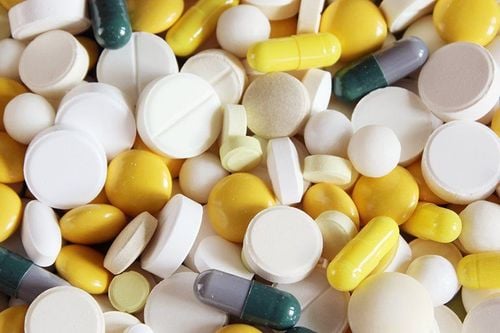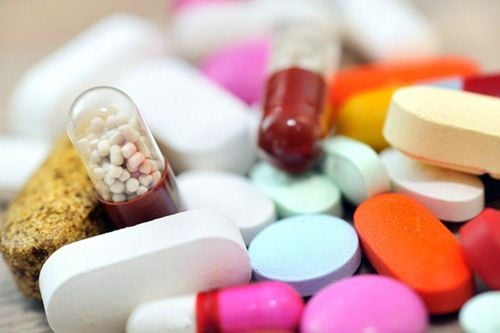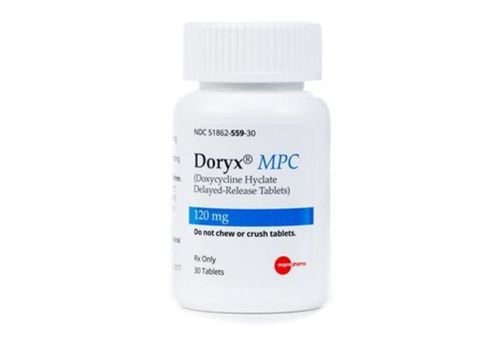This is an automatically translated article.
This article was professionally consulted with Master, Doctor Nguyen Thi Nhat - Infectious Disease Specialist - Department of Medical Examination & Internal Medicine - Vinmec Hai Phong International General Hospital.Malaria is a contagious disease, if the infected person is not treated in time, the source of the disease will spread from sick person to healthy person. Subjects infected for the first time often do not experience typical fevers, while other symptoms appear, making it easy for patients to think they have the flu, dengue fever
1. Symptoms of Malaria
Typical malaria: presents through 3 stages including chills, fever, and sweating Atypical malaria: headache, fatigue, the patient will feel chills and often yawn. Clinical malaria must meet the following 4 factors: having all symptoms of typical malaria, or having symptoms of atypical malaria, persistent high fever. Other cases of fever of unknown cause, or fever in the last 3 days. Be in an area where malaria is endemic for at least 14 days or within the last 2 years with a history of malaria. Response to antimalarial drugs. Uncomplicated malaria - common malaria: in this case, the infected person does not have life-threatening symptoms. The diagnosis will be based on 3 factors: epidemiology, clinical symptoms and laboratory tests. . Prominent signs are confusion, high fever continuously for many days, severe headache, profuse diarrhea or vomiting.Trắc nghiệm: Bạn có phân biệt được chính xác cảm lạnh và cúm mùa?
Cảm cúm và cảm lạnh là hai khái niệm mà chúng ta thường đánh đồng nó giống nhau, không phân biệt rõ ràng. Dưới đây là một số câu hỏi trắc nghiệm, giúp bạn có thêm những kiến thức phân biệt cảm lạnh và cảm cúm. Từ đó, có những biện pháp điều trị bệnh phù hợp.2. How is malaria treated?
When infected with malaria, the patient must absolutely not self-treat at home, to avoid spreading the infection to healthy people, besides, if the disease lasts for a long time, does not improve, dangerous complications will appear. can cause death to the patient.Currently, the Ministry of Health has directed medical facilities to perform direct observation treatment, that is, when infected with malaria, the patient will be given medicine or injected under the close supervision of staff. medical. The indication for the treatment of direct observation applies to all cases of malaria due to Plasmodium infection with the common disease form. This method does not apply to people with severe malaria.

Use first-line drugs:
When malaria patients are infected with Plasmodium: the patient needs to use the drug 40mg Dihydroartemisinin + 320mg Piperaquin phosphate: for children under 3 years old, take 1 tablet on the first day, two days later every day. 1⁄2 tablets. Children from 3 to 8 years old, take 2 tablets on the first day, and 1 tablet per day after two days. Age from 8 to 15, the first day use 3 tablets, two days after taking 1.5 tablets each day. From 15 and over, take 4 tablets on the first day, and 2 tablets each day after two days. Women who are pregnant in the first 3 months of pregnancy should absolutely not use this medicine. When patients with malaria combined with Plasmodium falciparum: patients use Dihydroartemisinin - Piperaquin phosphate orally for 3 days in combination with Primaquin 0.25 mg base/kg body weight for 14 days and treated from the first day. Use of alternative medicine: When a patient using a first-line drug does not respond because the malaria parasite may be resistant to the drug and is proven by a scientific basis. The drug used is quinine sulfate at a dose of 30mg/kg body weight for 24 hours, divided equally 3 times a day. Patients drink continuously for 7 days, combined with doxycycline at a dose of 30mg/kg body weight in 24 hours, equally divided into 3 times/day. Drink continuously for 7 days in combination with clindamycin at a dose of 15mg/kg body weight divided equally, orally twice a day, orally for 7 days.
For patients with complicated malaria:
Infected people in villages: take 1 dose of combined antimalarial drug, and at the same time urgently transfer the patient to a higher level. Infected people treated at commune health stations: Artesunate should be injected intravenously immediately. If intravenous injection is not possible, intramuscular injection. Then transfer the patient to a higher level. In case the patient is having convulsions or is in shock, acute pulmonary edema, absolutely do not move the patient. 24 hours booster injection 1.2mg/kg body weight. Then inject 1 dose of 1.2mh/kg per day until the patient can drink, then switch to oral medicine for 7 days. People with malaria must absolutely take medicine according to the treatment regimen of doctors and medical staff, do not arbitrarily treat the disease at home. The early, correct and adequate treatment will help the patient recover early and not waste time. In addition to measures to prevent mosquito transmission, disease treatment measures are also very important that need to be concerned by health facilities.
Please dial HOTLINE for more information or register for an appointment HERE. Download MyVinmec app to make appointments faster and to manage your bookings easily.














